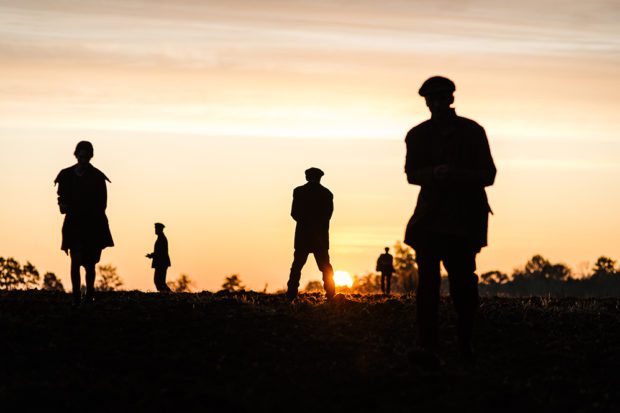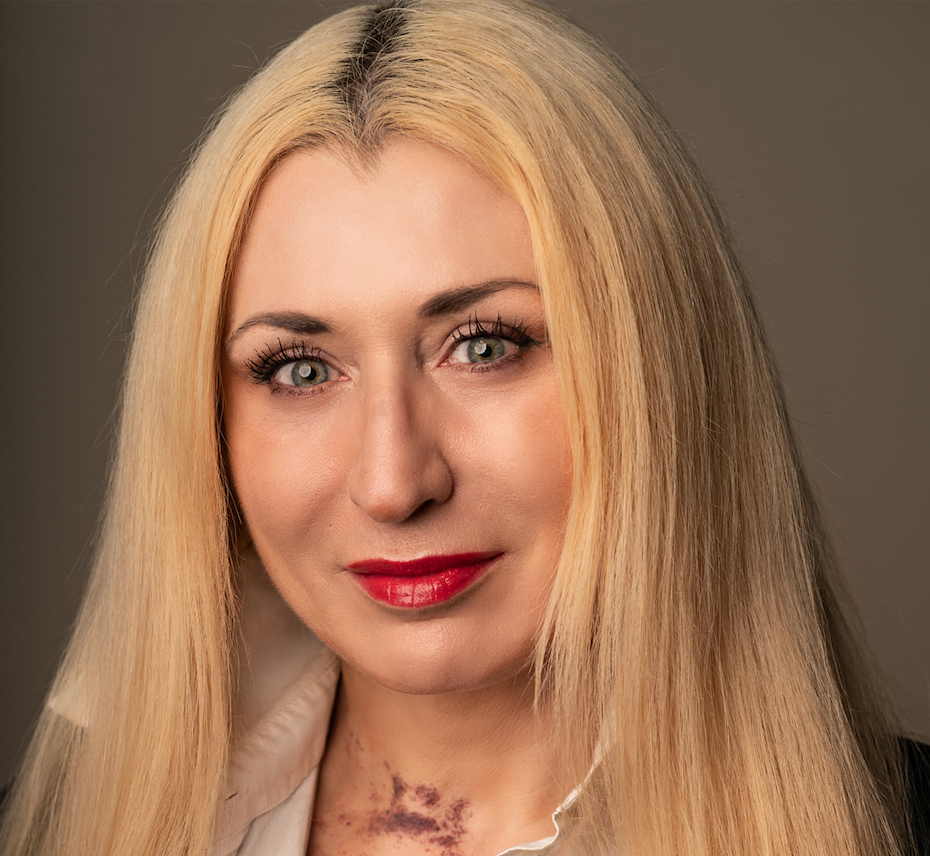
In 2022–2023, Ukraine commemorates the 90th anniversary of the Holodomor, a man-made famine engineered by Soviet dictator Joseph Stalin and his communist government. In 1932 and 1933, millions of Ukrainians were killed in the Holodomor, often referred to as the Great Famine, and translated as “death inflicted by starvation.”
During Stalin’s first five-year plan for the industrialization of the Soviet Union, farms were subject to collectivization, a forceful appropriation by the Soviet government. Rural farmers and villagers, roughly 80% of Ukraine’s population in the 1930s, resisted and faced executions, torture and deportations.
The exact number of deaths during the Holodomor in Ukraine is a subject of debate among historians. Estimates range from roughly 3.5 million to 7 million (with some estimates even higher). The most detailed demographic studies estimate the death toll at 3.9 million.
The classification of the Holodomor as a genocide against the Ukrainian nation has been a subject of ongoing debate and resistance, even though Raphael Lemkin, the legal expert who coined the term genocide, defined the Ukrainian famine as such.

“In the case of the Holodomor, this was the first genocide that was methodically planned out and perpetrated by depriving the very people who were producers of food of their nourishment (for survival). What is especially horrific is that the withholding of food was used as a weapon of genocide and that it was done in a region of the world known as the ‘breadbasket of Europe,’” according to Andrea Graziosi, professor at the University of Naples.
The sad anniversary highlights the ongoing struggle for Ukrainian survival as the Russian Federation is waging a full-scale war of aggression on Ukraine, employing methods reminiscent of Stalin’s era: execution, hunger, cold, terror, torture and deportation.
An award-winning Ukrainian filmmaker, scriptwriter and producer, Victoria Trofimenko, currently an artist-in-residence at the University of Texas–Austin, is working on a project about the Holodomor. In an interview, Trofimenko discussed the challenges of making the film.
How do you explain the Holodomor to the American audience?
The Holodomor, a severe famine in Ukraine caused by Soviet dictator Joseph Stalin in 1932–1933, led to millions of deaths. Ukraine, one of the republics of the USSR by that time, paid its price for speedy industrialization. The republic’s borders were sealed, trapping the Ukrainian population, while their bread was forcibly seized, leaving them to starve to death.
Meanwhile, Stalin exported the same bread at minimal prices to fuel industrial growth. Many Americans are still unaware of the Holodomor, even though the U.S. Senate passed a resolution in 2018 acknowledging the man-made famine as genocide against the Ukrainian people.
What is the focus of your film?
In my film, Yakiv, the protagonist starts as a dedicated communist who introduces the Communist Party to his village and enforces collectivization through torture. While initially portrayed as an antagonist, Yakiv undergoes a transformative journey.
Based on a real-life figure, Yakiv Drobot, who saved nearly 3,000 lives during the Holodomor, the film’s protagonist transforms from an executioner to a rescuer as the story unfolds. I see this transformation as a beautiful dramatic arc.
I chose to analyze human behavioral patterns within the context of the Holodomor. I believe that understanding the role fear can play in human behavior is crucial. I explored not only what Stalin inflicted upon the Ukrainians, which was horrific, but also the actions of ordinary villagers.
Focusing solely on victimhood is unproductive and only serves to weaken us. It is important to analyze the active deeds of individuals during the Holodomor to gain a better understanding.
In 2018, I attended a conference on Ukrainian-Jewish Dialogue about the Holocaust and the Holodomor in Israel. I was glad to see that they were openly analyzing cases of collaboration to prevent such behavior in the future.
The teaser for Yakiv became very popular. Why?
People liked the way it was shot and wanted this story to be told to the world in a proper and professional manner, on the big screen. This subject is important for Ukrainians: In almost every family, there is a story of a Holodomor loss. We carry this pain on a genetic level.
This is why Ukrainian resistance to the Russian war of aggression is possible. We have been collecting these traumatic experiences for too long. Now we see the response.
The teaser evoked strong emotions, leading to widespread discussion and coverage. This response from the public was unexpected. People were deeply moved as if they were watching an entire movie, not a teaser. The press supported me, reprinting articles and conducting interviews. I was overwhelmed and grateful for their reaction.
What challenges did you face working on the film project?
The subject of the Communist Party is painful and important for both ordinary Ukrainians and the political life of the country due to the many crimes committed in Ukraine during the Soviet era. I approach the story with utmost care, recognizing the high stakes at play, but initially, the film did not receive a state grant.
It took persistence and multiple pitches to convince the Ukrainian State Film Agency that I am not pro-Soviet and aim to create a powerful dramatic film without political statements and harmful consequences.
Eventually, in 2019, we won and were supposed to receive financial support from the Ukrainian government for the movie’s production. Unfortunately, Yakiv, along with many other film projects, lost state financing due to internal policy issues.
The Covid-19 pandemic overshadowed 2020. In 2021, the economy was recovering from the effects of the pandemic, and budgets were limited. We planned to apply again, but the full-scale Russian invasion started in February 2022.
In 2022, as a visiting scholar, I came to the University of Texas at Austin in the United States and began working on a book (stage play) based on this script. I continued searching for funds to bring the film Yakiv to life. I saw my presence in the U.S. as a twist of fate. I believe it was meant to be and that this was the path my story was taking, and I resolved to make the film here.
Can you share any insights into the research of the Holodomor in your film?
To write the script, I conducted extensive research, reading numerous historical accounts from the Holodomor survivors. I attempted to incorporate real dialogues documented in archives to ensure historical accuracy.
Daria Mittingly, a historian who has extensively studied the Holodomor at the University of Cambridge and translator of the famous book Red Famine by Anne Applebaum, recognized the thorough research and historical accuracy of my script.
You mentioned in an interview that the female perspective is “a hero who survives” versus a male model of “a hero who dies fighting.” Can you elaborate on this?
I have observed men’s fatal attraction to Thanatos, the personification of death in Greek mythology. This male perspective often revolves around self-sacrifice for a cause, depicting heroes who die fighting. This narrative is prevalent in stories of heroism, particularly within military contexts, aligning with global military agendas.
From a woman’s perspective, I do not find Thanatos attractive or compelling. Instead, I strive to understand the nature of life in the face of genocide. For me, it is more important to emphasize survival for the sake of future generations. My cultural and historical background might influence this perspective.
In Ukraine, Cossacks, free semi-nomadic warriors, lived in a specific territory called Sich. Their wives and families lived outside that territory, managing households and running businesses. While men were dying fighting, women were focusing on surviving. As a female director, this perspective shapes my storytelling approach.
In my story, I guide the audience through the horrors of Holodomor to a life-affirming conclusion. I hope so.
***
To see the Yakiv trailer, go to: https://www.youtube.com/watch?v=IgCYp5653PI

